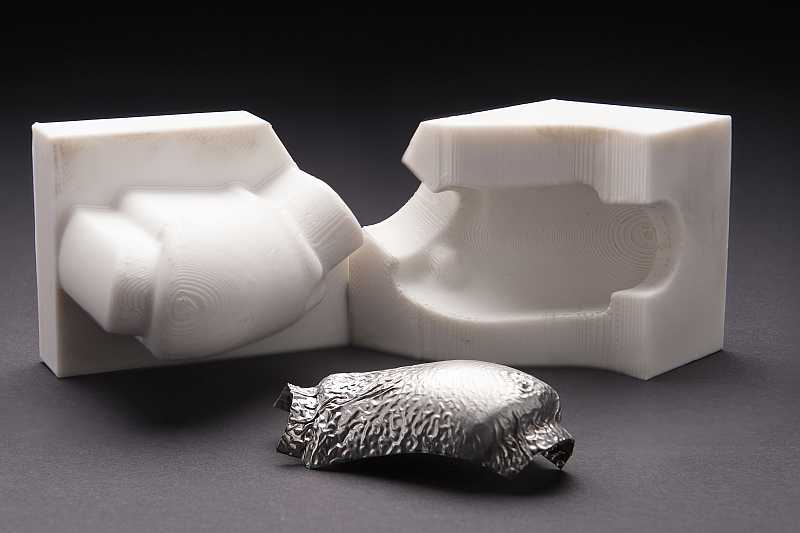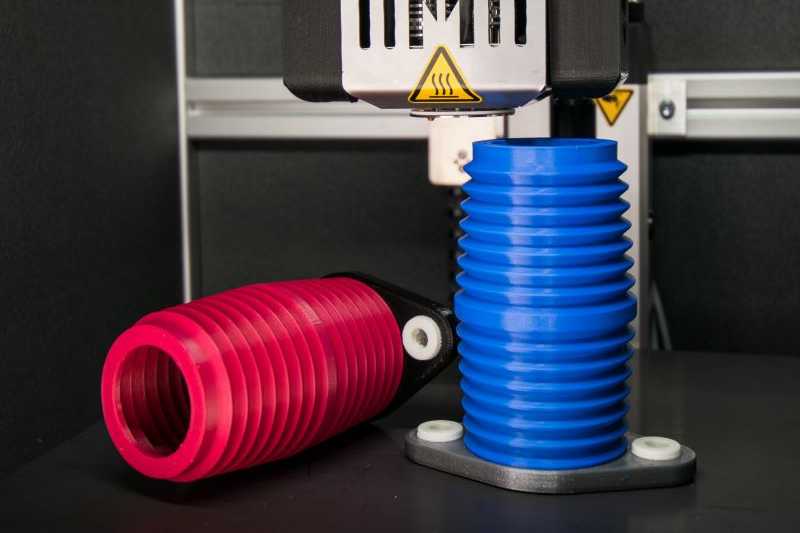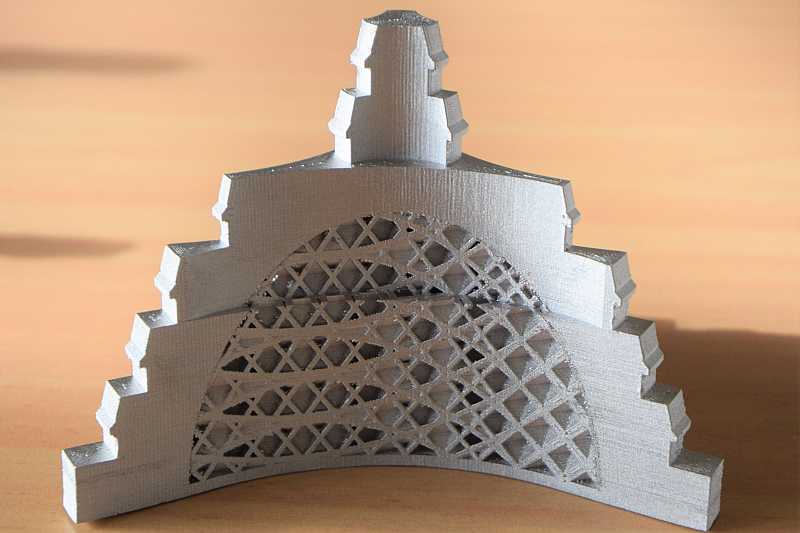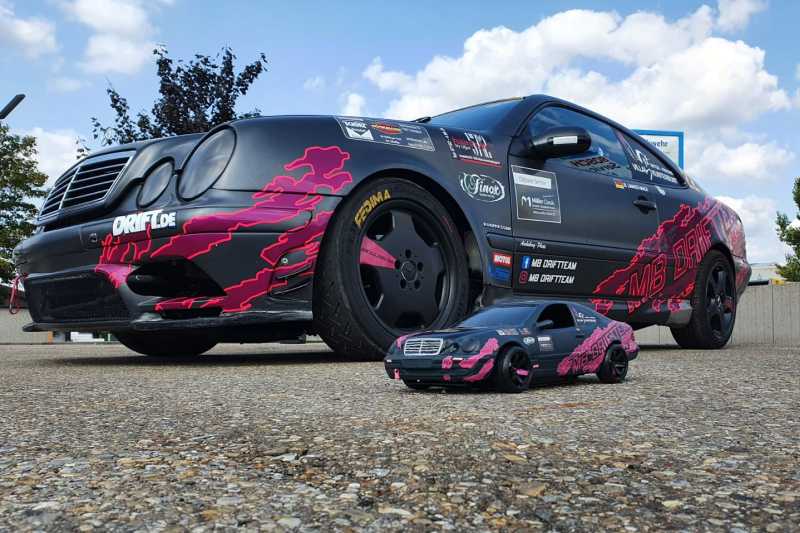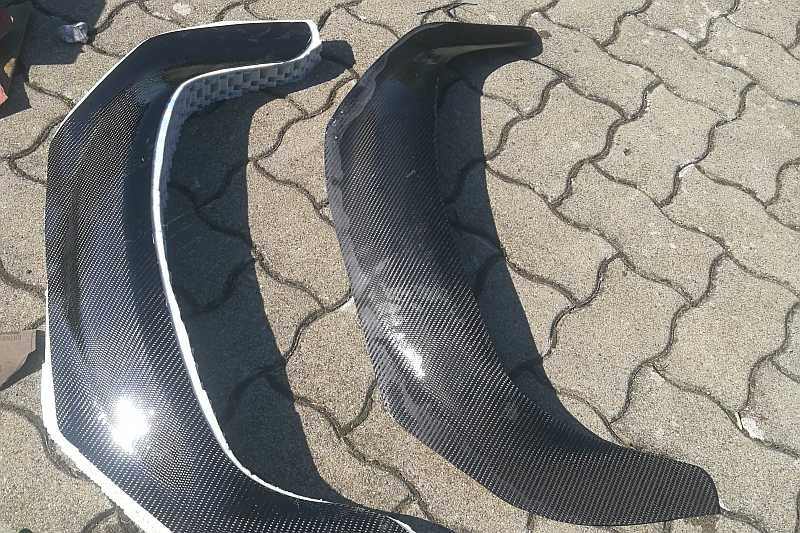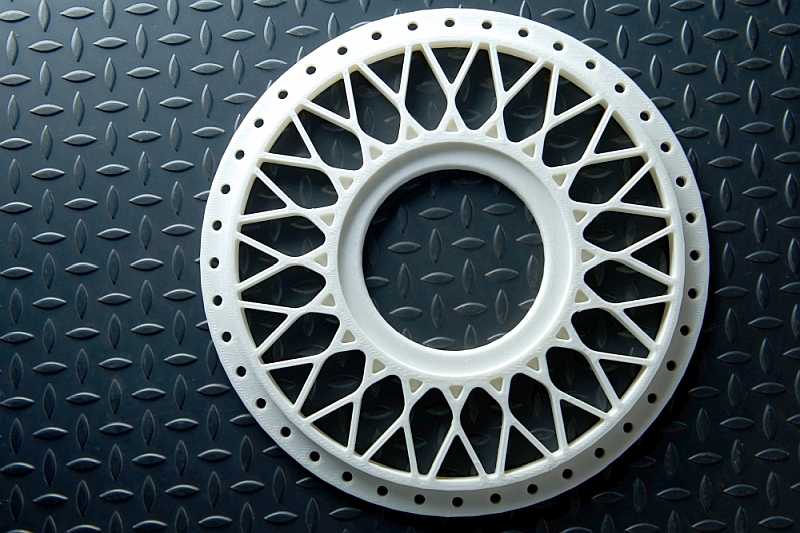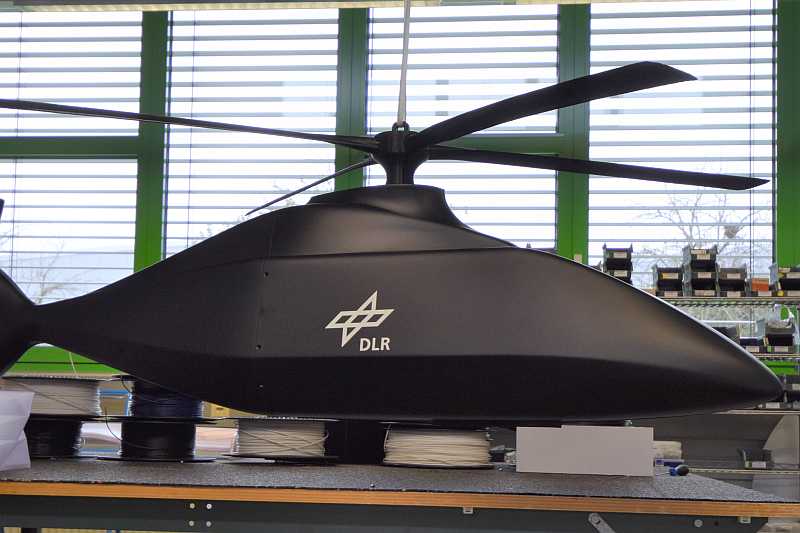
Windkanal-Modell
 |
Abmessung | 1,84 m Länge | |||
 |
Gewicht | 7,5 kg | |||
 |
Material | Multec PLA-HT | |||
 |
Druckdauer | 120 h |
Auf Anfrage des deutschen Zentrums für Luft- und Raumfahrt entstand Ende 2019 ein 3D-gedrucktes Hubschrauber-Windkanalmodell mit einer Länge von ca. 1,84 Meter. Das mehrteilige Modell wird in mehreren Teilen gedruckt und verschraubt.
Durch den Herstellungsprozess im 3D-Druck können Innenbereiche größtenteils hohl gedruckt werden, lediglich besonders beanspruchte Bereiche werden gezielt verstärkt und mit größeren Wandstärken und Füllgraden versehen.
So wiegt das Modell trotz seiner Größe lediglich 7,5kg und hält im Windkanal Windgeschwindigkeiten von bis zu 270km/h stand.
Als Material kommt Multec PLA-HT zum Einsatz, das Material zeichnet sich durch hohe Festigkeiten und Temperaturbeständigkeiten aus.
Zur Vermeidung falscher Messwerte durch Verwirbelungen sind bei Windkanalmodellen perfekte Oberflächen gefordert. Das gedruckte Modell wurde daher anschließend abgeschliffen und lackiert. Durch die gute Nachbearbeitbarkeit (Schleifen, Bohren, etc..) eignet sich PLA-HT wunderbar für lackierte Bauteile.
Gegenüber der konventionellen Herstellung von Windkanalmodellen aus Faserverbundwerkstoffen ist der 3D-Druck schneller und günstiger.
Bei konventioneller Fertigung müssen zunächst Formen gefräst werden, welche dann zur Herstellung von Bauteilen aus Glas-/Kohlefaser-Verbundwerkstoffen dienen. Der Formenbau erfordert meist mehrteilige Formen und ist zeit- und kostenintensiv. Die Herstellung der Bauteile erfolgt häufig im Handlegeverfahren und ist ebenfalls mit hohem Aufwand verbunden.
Im 3D-Druck können auch komplexe Geometrien in einem Arbeitsvorgang abgebildet werden. Der Formenbau entfällt komplett - je nach Bauteilgröße ist das gedruckte Bauteil innerhalb weniger Werktage einsatzbereit. Durch den additiven Aufbau des Modells wird Material nur dort aufgetragen, wo es benötigt wird – es fällt im Vergleich zur spanenden Bearbeitung quasi kein Abfall an.
Insgesamt konnten hier durch den 3D-Druck bei Multec im Vergleich zu Fertigung in Laminiertechik mehrere tausend Euro an Formbaukosten gespart werden und die Lieferfrist von Bestellung zum fertigen Bauteil enorm reduziert werden. Auch der ökologische Fußabdruck des 3D-Drucks mit diesem Multec PLA-HT Material ist hervorragend, da es aus nachwachsenden Rohstoffen produziert wird und sowohl recyclebar als auch biologisch abbaubar ist.
Tags: Prototyping, Funktionsteil

